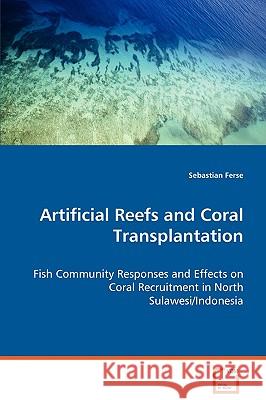Artificial Reefs and Coral Transplantation » książka
Artificial Reefs and Coral Transplantation
ISBN-13: 9783639073539 / Angielski / Miękka / 2008 / 244 str.
Coral reefs worldwide are increasingly threatened by human activities. As a consequence, the field of reef restoration has drawn increasing attention from scientists, management agencies and NGOs. Although a number of advances have been made, the ecological effects of most restoration techniques are not yet fully understood. How does coral transplantation affect reef fishes? Can transplantation of coral fragments be used to increase coral recruitment? The author tries to shed some light on the reaction of key reef organisms to selected restoration methods by examining the results of a long-term field study in Indonesia. Over 6000 coral fragments were transplanted and artificial structures were deployed on 600 square meters of reef in one of the most extensive experimental restoration efforts to date. Using comparative observations from the ambient reef, the study underlines the importance of reef context in deciding on the appropriate restoration approach. Furthermore, the author demonstrates the utility of reef fish monitoring in the evaluation of reef restoration effort. This book is aimed at students and scientists as well as practitioners and decision-makers.











